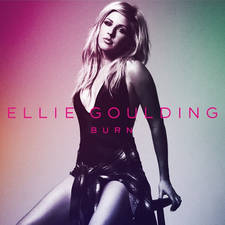Lottery Boost For 'Honour' Victims
21 November 2014, 06:05 | Updated: 21 November 2014, 07:11
A project supporting victims of honour abuse has been awarded almost £800,000 Lottery cash amid a rise in the number of reported cases.
The grant follows a survey which suggests the offence is accepted by a significant number of families in Edinburgh's black and ethnic minority communities.
When a family member abuses a relative they believe has shamed the family or community it is known as an honour crime.
Edinburgh's Bright Choices project has received £786,814 from the Big Lottery Fund to support 130 affected families over the next four years.
In a recent survey of 300 residents, 63% of people stated that honour abuse was a part of their family's belief system.
More than half (52%) said "honour'' would prevent them reporting a crime to the police, the poll by Edinburgh and Lothians Regional Equality Council found.
Police and voluntary organisations in the Lothians have seen a significant rise in honour abuse cases in recent years, according to figures quoted by the Big Lottery Fund.
Police dealt with 41 reported incidents in 2012 compared with 31 in the previous two years combined.
In honour cases the victims, usually women, are psychologically abused, assaulted or threatened with violence in the name of protecting or defending their family's cultural or religious beliefs.
They may have entered a relationship with someone from a different background or be reluctant to accept an arranged or forced marriage.
The support project was set up by community justice organisation Sacro, Edinburgh and Lothians Regional Equality Council and the charity Multi-Cultural Family Base, following consultation with Police Scotland.
Ian McDonough, from Sacro, said: "We will use restorative and mediation approaches to dealing with individual cases which have not resulted in formal action such as criminal prosecution but present indications that honour abuse is an actual or potential issue.
"Restorative approaches focus on repairing harm done to individuals and relationships by assisting people who have caused harm to acknowledge this and make amends and assisting those harmed to have reparation made to them.''
Steve Gowenlock, from Multi-Cultural Family Base, said: "We will offer one-to-one support using a counselling skills approach with the aim of helping an individual to make informed choices about their options. Family and group work for children, young people or adults will be offered aimed at improving family communication and functioning while play based approaches will be used with children."
Ekta Marwaha, from Edinburgh and Lothians Regional Equality Council, said: "Our role within this project will be to provide community engagement and an extensive outreach strategy. As an organisation our focus will be to raise awareness, provide initial advice, liaise with and provide training for professionals, community groups and organisations on the impact of 'honour abuse' and highlight the best methodologies for intervention.''
Big Lottery Fund Scotland chair Maureen McGinn said: "This project represents a new approach to helping black and minority ethnic families affected by honour abuse. At the Big Lottery Fund we are keen to support such an intervention which brings together the skills, experience and knowledge of a range of partner organisations.
"Working in partnership, they'll engage with and support families at as early a stage as possible whilst raising awareness and tackling this complex subject matter head on.''

